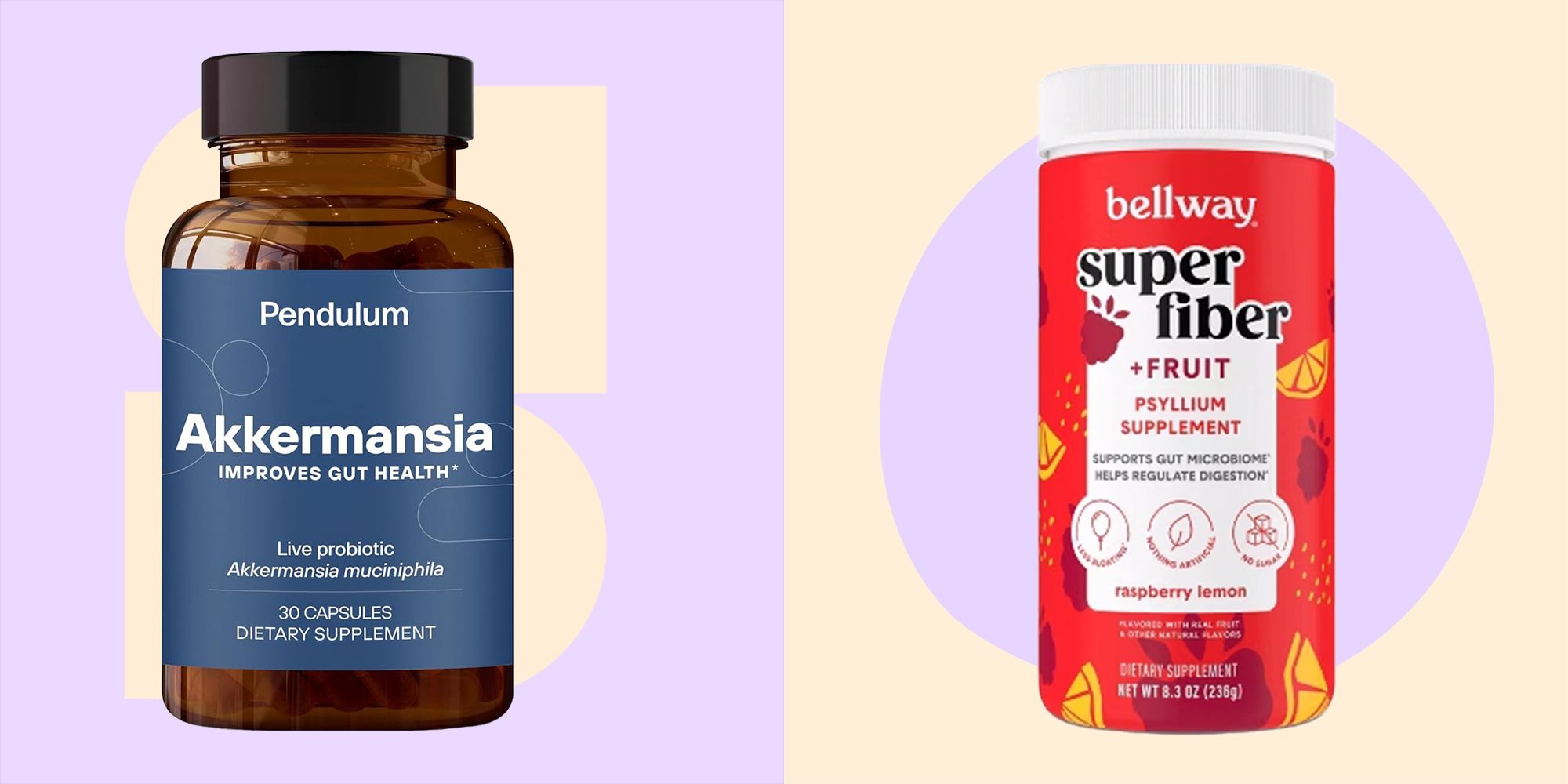How a Gut Health Supplement Can Help Reduce Bloating and Improve Comfort
How a Gut Health Supplement Can Help Reduce Bloating and Improve Comfort
Blog Article
Discover the Trick to Food Digestion and Resistance With Intestine Wellness Assistance

Understanding Intestine Health
Comprehending gut wellness is important for total wellness, as it plays a substantial role in digestion, resistance, and even psychological health. The digestive tract, consisting of the intestinal system, is responsible for breaking down food, soaking up nutrients, and removing waste. A well balanced intestine setting makes sure efficient digestion, allowing the body to make use of nutrients effectively.
In addition, gut health and wellness considerably influences the body immune system. The intestine houses a significant portion of the body's immune cells, and a healthy and balanced intestine can aid fend off microorganisms and lower swelling. Interruptions in gut health and wellness can bring about an overactive immune action, potentially adding to autoimmune disorders and allergic reactions.
Furthermore, the intestine is usually referred to as the "second mind" because of the gut-brain axis, an intricate communication network linking the gut and the mind. This link influences state of mind, cognition, and emotional wellness. Concerns such as dysbiosis, characterized by an inequality in digestive tract microorganisms, have actually been connected with mental wellness conditions, including stress and anxiety and anxiety.
The Intestine Microbiome Explained

The intestine microbiome, a varied area of microbes living in the stomach tract, plays a crucial role in preserving digestion health and wellness and total health. Comprising trillions of bacteria, viruses, fungi, and various other germs, this complex community help in the digestion of food, the synthesis of important nutrients, and the policy of metabolic procedures.
Each individual's gut microbiome is unique, affected by aspects such as diet, lifestyle, genes, and environmental direct exposures. A balanced microbiome supports ideal digestion by breaking down complex carbs, producing short-chain fats, and facilitating the absorption of nutrients. On the other hand, an inequality, frequently described as dysbiosis, can bring about gastrointestinal problems, including short-tempered bowel syndrome (IBS) and inflammatory digestive tract condition (IBD)
Research has shown that a diverse microbiome is related to much better wellness outcomes, highlighting the relevance of dietary selections in nurturing these microorganisms. Foods abundant in fiber, probiotics, and prebiotics, such as fruits, veggies, and fermented items, can advertise a healthy microbiome. Recognizing the digestive tract microbiome is necessary for developing targeted interventions focused on improving digestive health and wellness and preventing intestinal illness.

Connection In Between Digestion and Resistance
A durable link exists in between food digestion and immunity, highlighting the crucial duty of the digestive tract in keeping overall health. The intestinal system is home to trillions of bacteria that create the digestive tract microbiome, which significantly influences both gastrointestinal procedures and immune reactions. This complicated environment aids in damaging down food, absorbing nutrients, and providing crucial metabolites that sustain immune feature.
When food digestion is effective, the intestine obstacle remains intact, avoiding dangerous virus from entering the bloodstream (gut health supplement). Conversely, poor digestion can lead to an inequality in the microbiome, resulting in dysbiosis, which has been linked to various health problems, including inflammatory disorders and autoimmune illness. Around 70% of the immune system lives in the gut-associated lymphoid cells (GALT), which interacts carefully with the intestine microbiome. This interaction makes sure that the immune system can efficiently compare hazardous and valuable materials.
Tips for Sustaining Digestive Tract Health
Sustaining intestine wellness is crucial for keeping both digestion effectiveness and a well-functioning body immune system. To promote optimal intestine wellness, think about incorporating numerous useful techniques into your daily regimen.
First, prioritize hydration. Drinking i was reading this sufficient water supports food digestion and aids keep the mucosal cellular lining of the intestines. In addition, normal physical activity can boost digestive tract mobility and advertise a diverse microbiome.
Conscious eating practices are additionally essential. Eating food completely and eating slowly can help food digestion and protect against over-eating, which may stress the digestive tract. Handling tension with techniques such as meditation, yoga exercise, or deep-breathing workouts can positively affect digestive tract health and wellness, as stress is recognized to interfere with digestive procedures.
Incorporating prebiotics and probiotics into your routine is another efficient approach. While specific foods will be gone over later, recognizing the value of these elements is critical. Prebiotics serve as food for advantageous intestine bacteria, while probiotics present live useful microorganisms.
Finally, avoid too much usage of prescription antibiotics, as they can interfere with the balance of digestive tract plants. By complying with these tips, you can substantially add to the upkeep of a healthy gut, which is important for overall health and vigor.
Foods That Promote Digestive Tract Wellness

Fermented foods, such as yogurt, kimchi, kefir, these details and sauerkraut, are rich in probiotics, which are useful bacteria that support intestine vegetations and boost food digestion. These foods can assist restore equilibrium in the intestine, especially after antibiotic use or gastrointestinal disturbances.
Along with fermented alternatives, prebiotic foods, such as garlic, onions, asparagus, and bananas, function as nutrition for these probiotics, promoting their development and task. These soluble fibers support gut mobility and can minimize issues like constipation.
In addition, including high-fiber foods, including entire grains, fruits, legumes, and veggies, is necessary for keeping a healthy and balanced digestive tract. Fiber aids in normal defecation and assists avoid digestive problems.
Lastly, omega-3 fats found in fatty fish, flaxseeds, and walnuts have anti-inflammatory residential or commercial properties that can additionally sustain gut wellness. Emphasizing these foods in your diet regimen can lead to a durable digestive system and improved immune feature.
Final Thought
To conclude, prioritizing intestine health is crucial for optimizing food digestion and enhancing immunity. A well balanced intestine microbiome, influenced by nutritional selections and lifestyle aspects, plays a crucial function in nutrient absorption and swelling decrease. Incorporating fermented foods, prebiotics, and high-fiber choices, along with proper hydration and tension monitoring, can significantly promote digestive tract health. By taking on these strategies, individuals can sustain general wellness and vigor, unlocking the potential benefits of a well-functioning intestinal system.
Understanding gut health is essential for overall wellness, as it plays a considerable function in digestion, immunity, and even psychological wellness. The intestine houses a significant part of the body's immune cells, and a healthy and important site balanced digestive tract can assist fend off microorganisms and decrease inflammation.Additionally, the gut is often referred to as the "2nd mind" due to the gut-brain axis, a complicated communication network linking the intestine and the mind.A durable link exists in between digestion and resistance, highlighting the critical duty of the digestive tract in maintaining overall wellness.In final thought, prioritizing intestine wellness is vital for optimizing food digestion and improving immunity.
Report this page